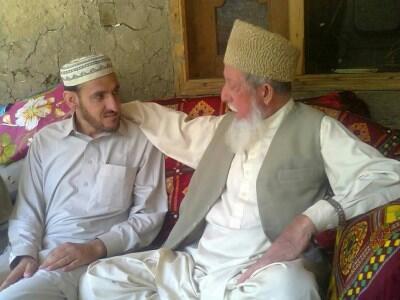Indus Kohistani region once used to be the last administrative unit (District) of Khyber Pakhtunkhawa (KPK) Province of Pakistan in the extreme North. This region is now consisting of 3 districts: Upper Kohistan, Lower Kohistan & Kolai Palas Kohistan. People living in this mountainous region speak few Indo-Aryan languages and therefore, they have their own ways and modes to live.
The indigenous people of Kohistani region have their unique culture which is significantly different from the surrounding ethnic larger communities of Pashtoons. Both the tangible and intangible cultural heritage of these people is at risk in many ways.
Sensing this fact, IPN management had launched a special wing under it since the inception of the organization back in 2012. This wing is called, “Kohistani Culture Development Program (KCDP) which is making all possible efforts in this connection to make a difference.
A comprehensive ethnographic Study was initiated by Mr. Talib Jan Abasindhi; the founding father of IPN back in 2002 while using a well reputed questionnaire, “An outline of cultural materials (Murdock, et.al. 1971)”. This questionnaire is widely used for anthropological studies in South Asia. This book which is in English is now a days in its editing stage.
Sensing a threat to Indus Kohistani indigenous intangible cultural heritage, KCDP was established under IPN to make all possible efforts to document and safeguard the intangible IK cultural heritage. An addition to and expanding of the ethnographic work of Mr. Talib Jan Abasindhi, KCDP was established as a wing of IPN to tackle this issue in a proper and professional way.
Due to a variety of reasons, most of the intangible cultural heritage of Indus Kohistani People is no more or hardly existing. Local poetry, traditional ways of healing and treating, use of local herbs and shrubs in treatment of human beings and animals, folk lore, and artifacts are the examples of extinguishing intangible cultural heritage.
Our work in documenting the intangible cultural heritage is in progress with a very much slow pace due to the lack of financial and time resources. Dedicated salaried team is needed to focus various aspects of recording, coding and decoding intangible cultural heritage and document it through publishing as a world cultural heritage because the local wisdom and knowledge found it is found nowhere else and hence it needs to be shared with the outer world for learning, knowing and use. Therefore, the likeminded researchers, linguists, anthropologists & organizations should come forward in partnering and joining hands with us for this greatest ever cause.

